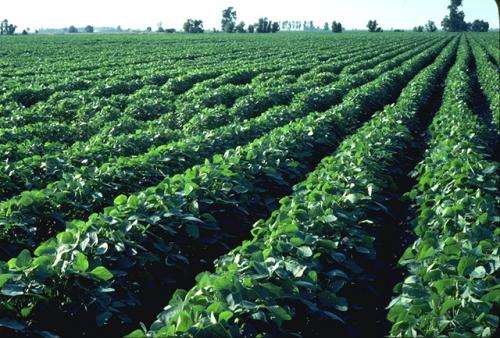August 17, 2015 report
Report suggests world food shocks likely to grow more common due to global warming

(Phys.org)—A report issued by the Global Food Security program, offers dire warnings of disruptions to food supplies in the future due to changes in the environment wrought by global warning. Titled "Extreme weather and resilience of the global food system," the authors of the report note that weather extremes have already caused some food problems and suggest that changes be made to the current system to prevent suffering and unrest in parts of the world as shocks to the food production system grow more common.
A host of scientists, industry experts, policy makers and others contributed to creating the report, and multiple experts from across the globe were consulted. The result is a report that notes the suffering that happens when food disruption occurs, primarily in third world nations, or in those countries that are heavily dependent on food imports. They suggest that the study of the past indicates that going forward, serious events that caused problems with food production, such as droughts, that have happened on average once a century, likely will occur as often as every thirty years, or once a decade later this century. And there is, they add, a likelihood that some of those shocks to the system could be worse than has been seen before.
In addition to global warming, there are other factors that could cause food problems—globalization of food production is one example. Droughts in a major food producing country, the authors note, tend to lead to export controls, leading to food shortages in countries that depend on such imports, mainly, in Africa. Abrupt changes in the price of oil can cause problems as well—not only does the price of oil directly impact the cost of food production, but it can lead to more reliance on crops dedicated to producing energy, rather than food for hungry bellies. And of course there is the looming need to grow more food as the world population continues to expand at an alarming rate.
The authors suggest that most food production shocks in the near future likely will not impact developed nations much, especially those that grow most of their own food. It will be developing nations or regions that are not able to produce much food, such as the Middle East, that will feel the brunt of food shortages or spikes in costs. They suggest that countries get together soon to figure out a way to offset the problems that can occur during regional droughts and to better understand what is at stake. An early warning system, they note, that could predict price spikes could help.
More information: Report: www.foodsecurity.ac.uk/assets/ … obal-food-system.pdf
© 2015 Phys.org


















